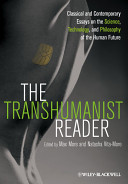Transclusion
Now, with respect to literature, authors are frequently faced with the task of re-explaining and restating background material that has been explained well elsewhere. If you could just borrow that material, those existing good explanations, and incorporate them (with automatic credit where due), your efforts could be spent stating what is new. We introduce the concept of transclusion to separate the arrangement of a document from its content. There is an underlying shared pool of contents, and all documents are just arrangements of pieces from that pool. [For example, imagining] three circled appearances of the same text are actually just one piece of text in the underlying shared pool of contents, and it just happens to appear in three different arrangements which constitute three different documents. We refer to the three documents as transcluding that piece of text. The separation of content and arrangement also leads to good support for incremental editing. Different versions of a document are just different arrangements of mostly shared content.
This is more than just a hack to avoid the storage cost of making separate copies. Hyperlinks are linked to the content, not to a span in an arrangement. Therefore, when someone writes a criticism of content as it appears in one arrangement, that criticism is visible for the same content as it appears in all other arrangements, including arrangements that were made before the criticism was attached. The normal incremental editing process of a single document is analogous to evolution by point mutation. The ability to transclude text from other documents allows the analog of sexual recombination. Were links visible only from the arrangement into which they were made, both variation processes would destroy selection pressures by leaving criticisms behind.
Notes:
From Mark S. Miller's "The Open Society and Its Media"
Folksonomies: communication conversation
Taxonomies:
/shopping/gifts/flowers (0.604019)
/sports/swimming (0.499889)
/technology and computing/software/shareware and freeware (0.414240)
Keywords:
Mark S. Miller (0.976271 (neutral:0.000000)), incremental editing (0.939637 (positive:0.843075)), underlying shared pool (0.896441 (positive:0.463225)), normal incremental editing (0.857790 (neutral:0.000000)), arrangement (0.769985 (positive:0.298871)), arrangements (0.738395 (positive:0.567613)), different arrangements (0.705927 (neutral:0.000000)), Open Society (0.670692 (neutral:0.000000)), automatic credit (0.662013 (neutral:0.000000)), content (0.655005 (positive:0.576186)), background material (0.653365 (negative:-0.453904)), good explanations (0.646173 (neutral:0.000000)), sexual recombination (0.625718 (neutral:0.000000)), separate copies (0.616835 (negative:-0.773053)), selection pressures (0.616749 (negative:-0.360683)), storage cost (0.610588 (negative:-0.773053)), variation processes (0.607851 (negative:-0.360683)), good support (0.606014 (positive:0.843075)), point mutation (0.605830 (neutral:0.000000)), Different versions (0.601706 (positive:0.574713)), different documents (0.597494 (neutral:0.000000)), single document (0.582170 (neutral:0.000000)), transclusion (0.551615 (positive:0.310769)), text (0.535991 (positive:0.233908)), criticism (0.473741 (neutral:0.000000)), contents (0.421349 (positive:0.348566)), piece (0.421201 (positive:0.233908)), respect (0.370596 (neutral:0.000000)), Media (0.366329 (neutral:0.000000)), literature (0.366179 (neutral:0.000000))
Entities:
Mark S. Miller:Person (0.845904 (neutral:0.000000))
Concepts:
DNA (0.946376): website | dbpedia | freebase | yago
DNA repair (0.804277): dbpedia | freebase | yago
Mutation (0.803379): dbpedia | freebase
Natural selection (0.790024): dbpedia | freebase
Literary criticism (0.763152): dbpedia | freebase
Transclusion (0.742074): dbpedia | freebase | yago
Project Xanadu (0.736377): dbpedia | freebase | yago
Hyperlink (0.716837): dbpedia | freebase | opencyc





